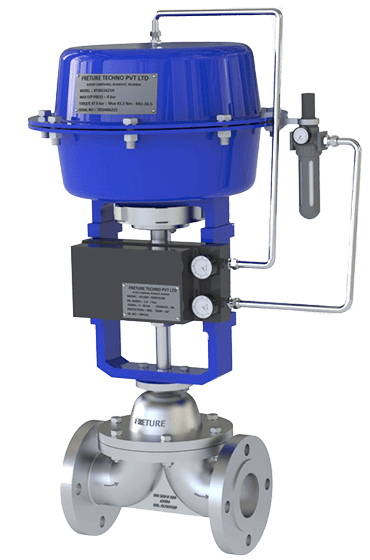Choosing between weir-type and straight-through diaphragm valves depends on fluid properties and process requirements. Each type has distinct advantages for different industrial applications.
Weir-Type Diaphragm Valves
Ideal for precise flow control in industries requiring sterility and contamination-free environments.
Commonly used in pharmaceutical, biotechnology, and food processing applications.
Provides excellent shut-off capabilities for liquids and gases.
Limits fluid retention, making it ideal for sanitary applications.
Works best with low to medium-viscosity fluids.
Straight-Through Diaphragm Valves
Designed for high-viscosity fluids and slurries.
Allows full-bore, unobstructed flow, minimizing pressure drop.
Preferred for wastewater treatment, mining, and bulk fluid handling.
Suitable for abrasive materials, as the design minimizes internal wear.
More effective for handling thicker fluids and particulates.
Comparison Table
| Feature | Weir-Type | Straight-Through |
|---|---|---|
| Flow Control | High Precision | Full Bore |
| Applications | Pharma, Food, Chemicals | Water, Sludge, Mining |
| Maintenance | Low | Moderate |
| Flow Restriction | Moderate | Minimal |
| Suitable Fluids | Low-Viscosity | High-Viscosity |
When selecting the right valve, industries must evaluate their process needs, including factors such as fluid viscosity, pressure levels, contamination risks, and regulatory compliance. Weir-type valves remain the top choice for pharmaceutical and sanitary applications, while straight-through valves are the preferred option in bulk material processing and wastewater treatment.
Furthermore, advancements in actuation technology and smart control systems have enhanced the functionality of both valve types, providing better efficiency, safety, and process control. Automated diaphragm valves integrated with real-time monitoring systems are increasingly popular, helping industries reduce downtime and optimize operations.

No comments:
Post a Comment